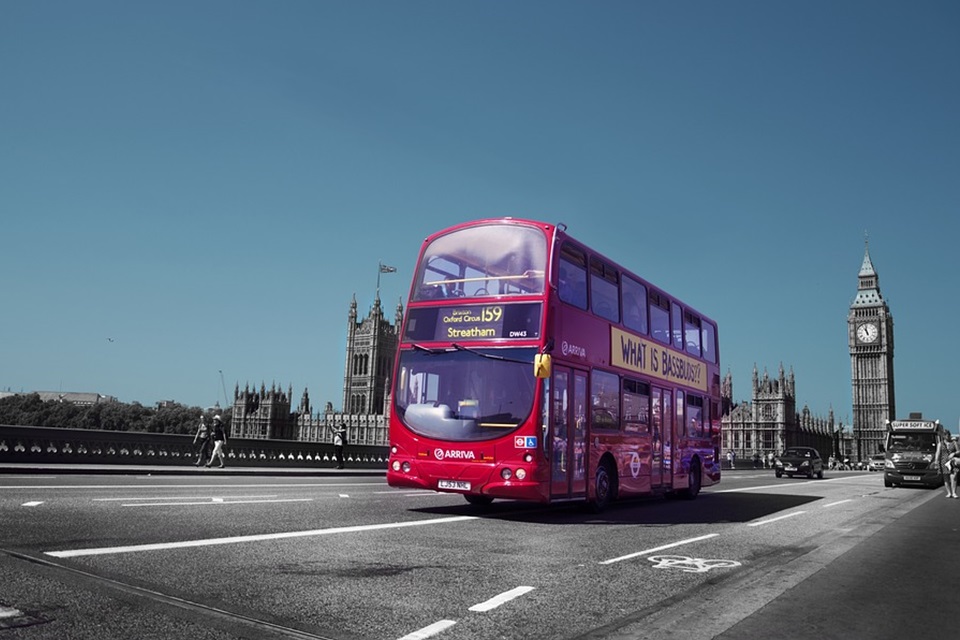Do you like to travel around the UK and dream of exploring every corner of the country? Great choice! From Northern Ireland’s Giant’s Causeway to the sunny beaches of Brighton, you’ll find hundreds of amazing destinations for travel inspiration.
However, when it comes to choosing between the available transportation options, you may face some doubts. Train, bus, or car – which do you prefer? For those who intend to explore the UK, we have compiled detailed instructions on how and where you can go to Wales, Scotland, Central England, or Northern Ireland. Choose the direction and method of travel, make a route, and set off for adventure!
Table of Contents
Train
The UK has the oldest and most extensive railway network in the world, covering most of the country, from Penzance in Cornwall to Thurso in the north of Scotland. Several private companies provide intercity rail transportation within the country. Among them are East Midlands Railway, Lumo, Avanti West Coast, South Western Railway, and other operators.
The main railway hub in the UK is, of course, London. It’s an excellent starting point for travelling to all destinations of the island nation. The cost of tickets depends on the distance between points A and B. For example, a trip from London to Edinburgh costs about £50-60 for a standard coach seat. At the same time, you will pay a minimum of £13 for a short ride from Liverpool to Sheffield. Consider where you can go by train from the main stations of the British capital.
- Easily accessible via the Jubilee, Bakerloo and Northern lines, Waterloo hosts the country’s main rail arteries. It provides fast connections to coastal towns such as Southampton, Poole, Bournemouth, Portsmouth, Salisbury, and Windsor, which hosts the residence of the royal family. Ascot, Ersom, Reading, and other English cities are also accessible from this station.
- Paddington. Choose this station if you need to travel to South Wales and South West England, to cities such as Cardiff, Bristol, Exeter, Plymouth, and Swansea. Located near Bayswater and Marylebone, it borders Hyde Park and the Regent’s Canal, the main local highlights.
- King’s Cross. One of London’s key transport hubs offers connections to York, Newcastle, Edinburgh, Glasgow, and Cambridge. By the way, there you will find the famous platform 9 ¾, from where real wizards go to Hogwarts.
- Pancras. Eurostar trains depart from Saint Pancras International Station for Brussels and Paris. It also serves destinations in the north of the UK – Nottingham, Sheffield and Derby, Lille, Sheffield, and Leicester are among them.
- Operating as a rail and underground station, Euston links London to several major UK cities including Birmingham, Manchester, Liverpool, Glasgow, Edinburgh, and Aberdeen.
Bus
Bus transportation pros and cons are based on ticket price, comfort, and travel time. Moving around the UK by bus is cheaper than by train and easier than by plane. Although this way you will spend a lot of time on the road. So, you can get from London to Glasgow in eight hours, and from London to Edinburgh in nine.
The largest and cheapest operator – National Express – offers routes to more than 1,200 points. One more carrier – Megabus – provides cheap tickets, with prices starting from one pound. At the same time, Oxford Tube and Oxford X90 buses are convenient for travelling between Oxford and London, while Citylink operates regular services to the north of England and Scotland.
You can go on such a trip both from city stations, such as Victoria and from Heathrow, Gatwick and Stansted airports. For those who want to explore Britain by bus, EveBus provides special tourist tours to various cities in England, Wales, and Scotland. Drivers select the most scenic routes and completely immerse guests in the atmosphere and traditions of the country. You can get by bus to almost any city in the UK but the most popular destinations for such travel are Bath, Windsor, the Lake District, York, Cambridge, Oxford, Liverpool, Manchester, Canterbury and Cardiff.

Car
The concept of road trips by car is gaining more and more fans. You don’t have to stick to schedules and waste precious time when travelling on four wheels. Plus, the car gives even more advantages when having a big group ride.
Imagine that you have gathered your family and want to cruise along the coast of Wales. Your best bet is to pick up a 9-seater minibus hire in Cardiff and move at your own pace. Yes, if you hire a car 9-passenger minibus, you can travel all together without the risk of anyone getting lost. In addition, a large vehicle provides enough space for everyone, ensuring comfort at every stage of the trip. We recommend that you book a 9 seater car hire in Cardiff in advance to enjoy the low price.
Whether it’s touring the city streets or driving to Loch Ness, a car means a wide range of travel benefits. The major ones are:
- freedom of route planning
- cheap daily rates starting from £15 per day
- comfort and privacy of the interior
- independence from any schedules
- time economy
- more travel experiences.
When deciding between train, bus, and car, consider your budget and travel desires. While the first two options are roughly similar in terms of experience, driving a car in the United Kingdom is a different matter. The main advantage of this type of transport is convenience, flexibility and affordable price. However, you can choose the bus or train if you don’t want to be burdened with additional obligations.



